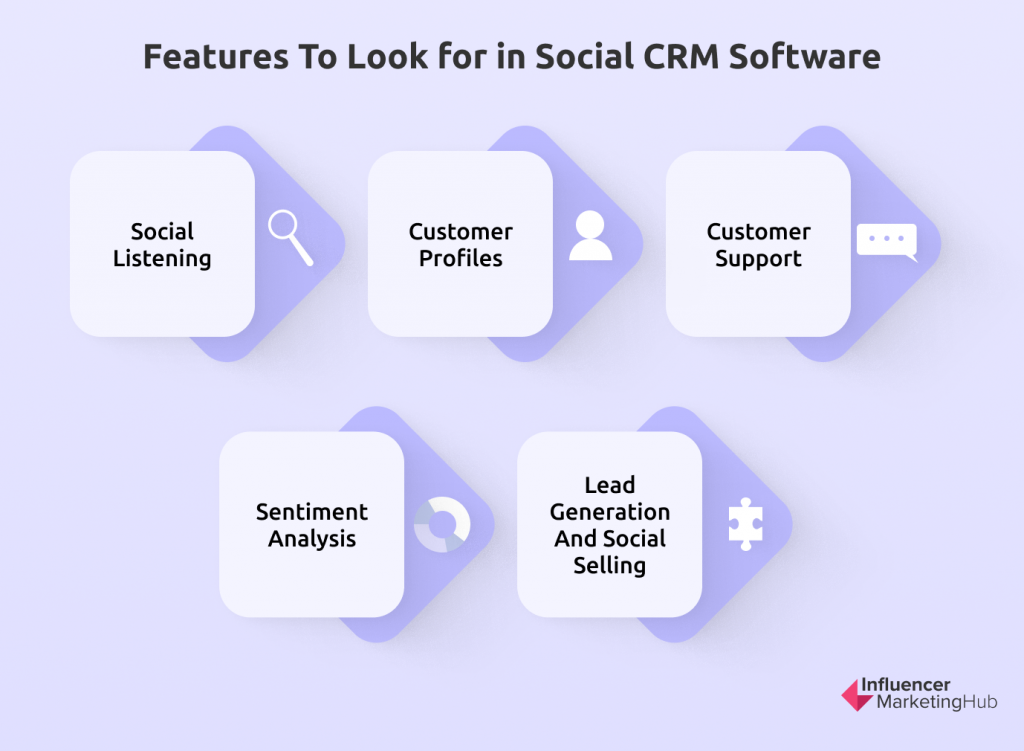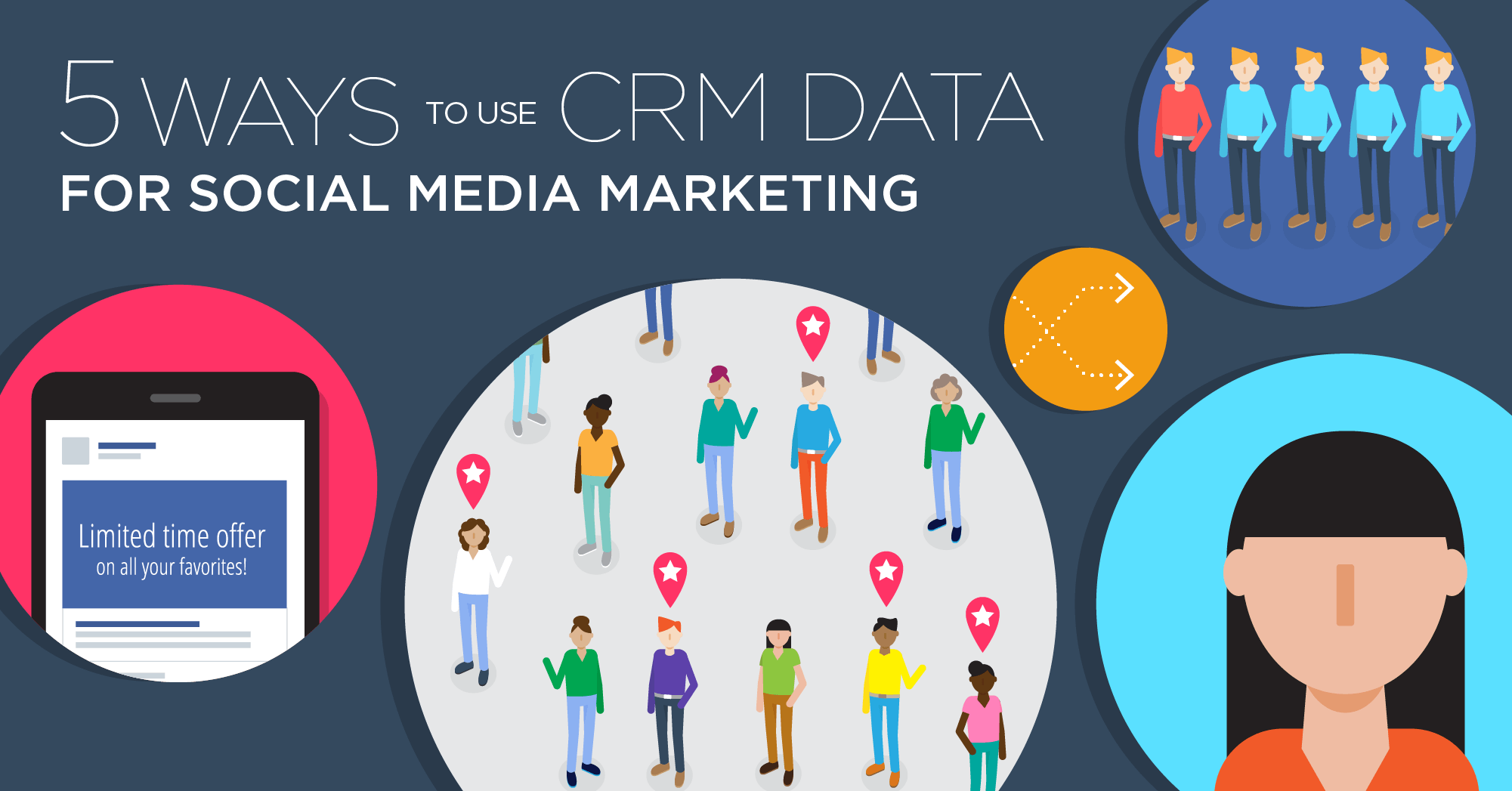Discover the transformative power of the best CRM for social media marketing in this comprehensive guide. We’ll explore the essential features, compare leading solutions, and delve into the benefits and best practices for implementing a social media CRM. Get ready to elevate your marketing efforts and unlock unprecedented growth.
Key Features for Social Media CRM: Best Crm For Social Media Marketing

To optimize social media marketing campaigns, a robust social media CRM system is essential. It offers a suite of features that empower businesses to manage their social media presence effectively, foster customer relationships, and drive business outcomes.
Key features of a comprehensive social media CRM include:
Social Listening
Social listening allows businesses to monitor social media platforms for mentions of their brand, products, competitors, and industry trends. By tracking these conversations, businesses can identify customer sentiment, gather valuable insights, and respond to customer queries and concerns promptly.
Lead Generation
Social media CRM systems offer lead generation capabilities that enable businesses to capture potential customers’ contact information through social media campaigns, contests, and other interactive initiatives. These leads can then be nurtured and converted into paying customers.
Analytics
Robust analytics dashboards provide businesses with valuable insights into the performance of their social media campaigns. By tracking metrics such as reach, engagement, conversion rates, and customer satisfaction, businesses can measure the effectiveness of their strategies and make data-driven decisions to optimize their efforts.
Comparison of Leading Social Media CRM Solutions

In the competitive landscape of social media marketing, choosing the right CRM solution is crucial for businesses to optimize their campaigns and engage with customers effectively. This section provides an in-depth comparison of the leading social media CRM providers in the market, highlighting their key features, pricing, and customer reviews.
Key Considerations for Comparison
Before delving into the comparison, it’s essential to consider the key factors that differentiate social media CRM solutions. These include:
Integration with Social Media Platforms
The ability to seamlessly integrate with popular social media platforms like Facebook, Twitter, Instagram, and LinkedIn.
Social Media Listening and Monitoring
Features for tracking brand mentions, analyzing customer sentiment, and identifying trends across social media channels.
Lead Generation and Nurturing
Tools for capturing leads from social media interactions and nurturing them through personalized campaigns.
Content Management and Scheduling
Functionality for creating, scheduling, and tracking social media content across multiple platforms.
Customer Relationship Management
Capabilities for managing customer interactions, tracking conversations, and providing personalized support.
Benefits of Using a Social Media CRM
Integrating a social media CRM into your marketing strategy offers a plethora of advantages, empowering businesses to enhance customer engagement, boost sales, and elevate their brand reputation.
The implementation of a social media CRM enables businesses to centralize and manage customer interactions across multiple social media platforms, gaining a comprehensive view of customer preferences and behaviors.
Improved Customer Engagement
- Streamlined communication: Social media CRMs facilitate seamless communication with customers through various channels, including direct messages, comments, and reviews, fostering stronger relationships.
- Personalized experiences: By tracking customer interactions, businesses can tailor their responses and content to each customer’s specific needs, enhancing engagement and satisfaction.
- Community building: Social media CRMs enable businesses to create and manage online communities, fostering brand loyalty and encouraging customer advocacy.
Increased Sales
- Lead generation: Social media CRMs help businesses identify potential customers by monitoring social media conversations and interactions, generating qualified leads for sales teams.
- Nurturing leads: Businesses can nurture leads through targeted social media campaigns, providing valuable content and engaging with potential customers to build trust and move them through the sales funnel.
- Customer retention: By providing excellent customer service and support through social media, businesses can increase customer loyalty and retention, leading to increased sales.
Enhanced Brand Reputation
- Reputation monitoring: Social media CRMs allow businesses to monitor their brand reputation across social media platforms, identifying potential issues and responding promptly to negative feedback.
- Positive sentiment analysis: By analyzing social media data, businesses can gauge customer sentiment towards their brand, identifying areas for improvement and leveraging positive feedback for marketing purposes.
- Influencer marketing: Social media CRMs facilitate collaboration with influencers, enabling businesses to tap into their audience and build brand credibility.
Implementation and Best Practices
Implementing a social media CRM can empower your organization to effectively manage customer relationships across social media platforms. Here’s a comprehensive guide to help you navigate the implementation process and maximize its effectiveness.
Before embarking on the implementation journey, it’s crucial to define clear goals and objectives for your social media CRM. Determine the specific outcomes you aim to achieve, such as improved customer satisfaction, increased brand awareness, or lead generation. This will serve as a roadmap throughout the implementation process.
Best Practices
To maximize the effectiveness of your social media CRM, consider these best practices:
- Integrate with Other Marketing Tools:Connect your social media CRM with other marketing tools, such as email marketing platforms and analytics tools, to create a cohesive customer experience.
- Monitor Performance Regularly:Track key metrics to measure the performance of your social media CRM. Analyze data on customer engagement, response times, and conversion rates to identify areas for improvement.
- Provide Excellent Customer Service:Use your social media CRM to provide prompt and personalized customer service. Respond to inquiries and resolve issues efficiently to build strong customer relationships.
li> Use Automation to Streamline Tasks:Automate repetitive tasks, such as scheduling social media posts and responding to common inquiries, to save time and improve efficiency.
Case Studies and Success Stories

Numerous businesses have achieved significant success in their marketing endeavors by leveraging social media CRM solutions. Here are some notable case studies that showcase the transformative impact of these tools:
Starbucks
Starbucks successfully utilized a social media CRM platform to enhance customer engagement and drive sales. By analyzing social media data, Starbucks identified key customer preferences and tailored its marketing campaigns accordingly. This resulted in a 20% increase in customer engagement and a 15% boost in sales.
Nike, Best crm for social media marketing
Nike effectively employed a social media CRM solution to build a loyal community of brand advocates. By engaging with customers on social media platforms, Nike fostered a sense of belonging and loyalty, leading to a 30% increase in brand awareness and a 25% rise in customer satisfaction.
Closure
By embracing the right social media CRM, businesses can revolutionize their marketing strategies, enhance customer engagement, drive sales, and build a reputation that resonates with their audience. The journey to social media marketing success starts here. Take the first step today and harness the power of a tailored CRM solution.